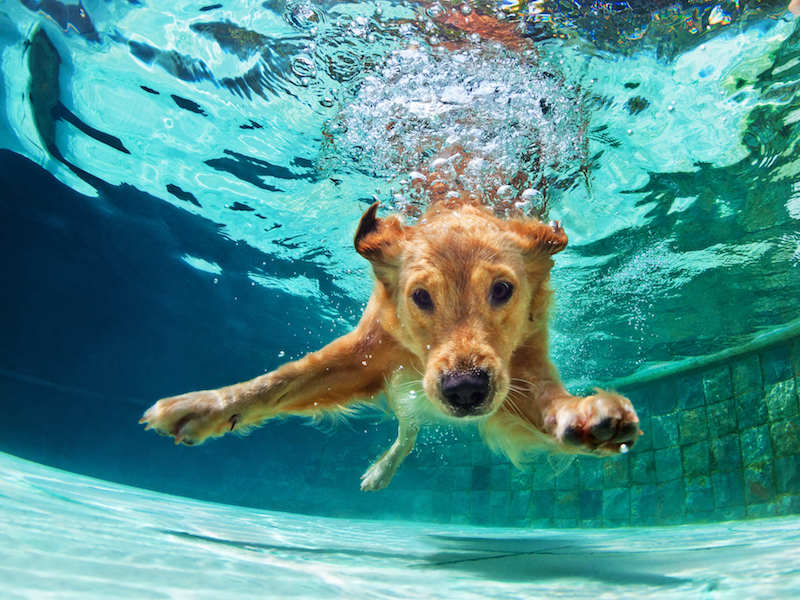
There are many factors which can affect the electrical circuitry of your hearing aids. Hearing aids seem to self-destruct under severe moisture conditions. Even if you already know that and take care to protect your investment from the shower, pool, or a good face washing, more than likely you are missing the most common cause of water damage in hearing aids: humidity.
Permanent damage is done by moisture that you can’t see. It’s essential to educate yourself about why humidity harms hearing aids.
Understanding Humidity
Despite the fact that the word humidity is very common, what does it actually mean? PBS describes humidity as water molecules in the air. The relative humidity refers to the ratio of water molecules in the air compared to how many the air can actually hold. When you can feel wetness in the air, that means the relative humidity is high.
Humans cool their body by sweating so that makes us very sensitive to humidity. When you sweat it evaporates into the air, but that doesn’t happen as quickly when the humidity level is high. Moisture and electronics don’t mix well and that includes hearing aids.
Why Electronics Have difficulty with Humidity
Too high or, too low, humidity can affect your hearing aids. When it’s too damp, the intricate electronics will accumulate condensation. When it’s too dry things become more brittle.
Hearing aids depend heavily on internal electronics to work. Newer digital hearing aids use a state-of-the-art signal processing chip to control noise. It’s what is behind elegant functions like:
- Noise reduction
- Anti-feedback
- Targeted listening programs
- Digital sound streaming
High humidity causes moisture to accumulate inside the hearing aids damaging that chip. It can corrode elements inside the casing and destroy batteries also. You might as well drop your hearing aid in a sink full of water, and the effect is the same.
How to Get A Handle On Humidity
Water resistant models are currently available. Having this feature doesn’t mean you can go swimming with your hearing aids in your ear, but it does give some protection against humidity and other weather-related issues like getting caught in an unforeseen rainstorm or even sweat when you exercise.
When it’s very humid try to reduce indoor water vapor by utilizing a dehumidifier. It’s not only your hearing aid that will benefit, there are health benefits, and other electronics in your house will also be protected. Dust mites, mildew, and mold thrive in moist environments so a dehumidifier will improve the quality of breathing as well. However, protecting your hearing aid more completely will require additional thinking. There are a few other things you can and should do.
Look for the dehumidifier made for hearing aids. They come at all costs levels. Drying kits rely on silica gel crystals to protect the electronics. You put the device in the dehumidifier for a couple of hours to eliminate moisture. There are also storage containers that dry hearing aids out each night as you sleep. In a pinch, you could use a bag of uncooked rice to remove moisture.
Don’t forget to leave the battery door open when you store your device. By pulling that door open before you put the hearing aid down, you expose the batteries and other elements to the air, allowing any condensation built up to evaporate naturally. Do this all year round, not just in the summer months.
Always store your hearing aids in a cool, dry place. On the table in the sun, in the glove compartment, or in a hot room are examples of where not to store your hearing aids.
Other Moisture Considerations
Damage can be caused by other types of wetness. Don’t forget to think about other types of wetness like:
- Make sure all lotion or sunscreen is fully absorbed before touching your hearing aids or putting them in your ears.
- Leave your hearing aids in a safe place before you go swimming.
- Wear a sweatband when exercising. If you are wearing your hearing aid then it’s a good idea in general. Sweat in your ears can cause problems later.
- Check surfaces before you put your hearing aid down. You don’t want to place it in a wet spot left by a glass or coffee cup.
Treat your hearing like the valuable asset that it is. Keep in mind how moisture can damage your hearing aids and make sure to prevent water from getting in them. If your hearing aid already has water damage make an appointment for service with a hearing aid specialist.
